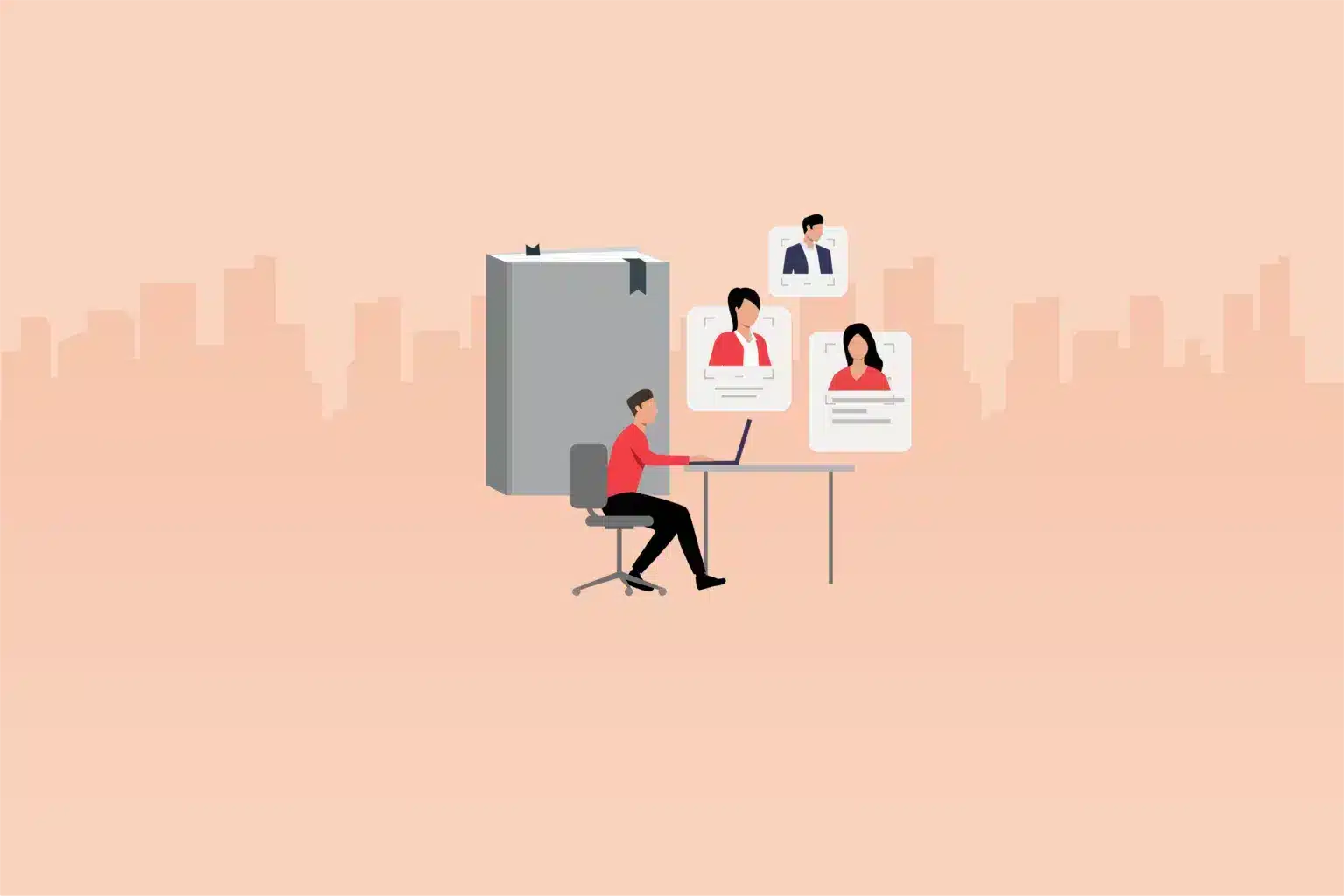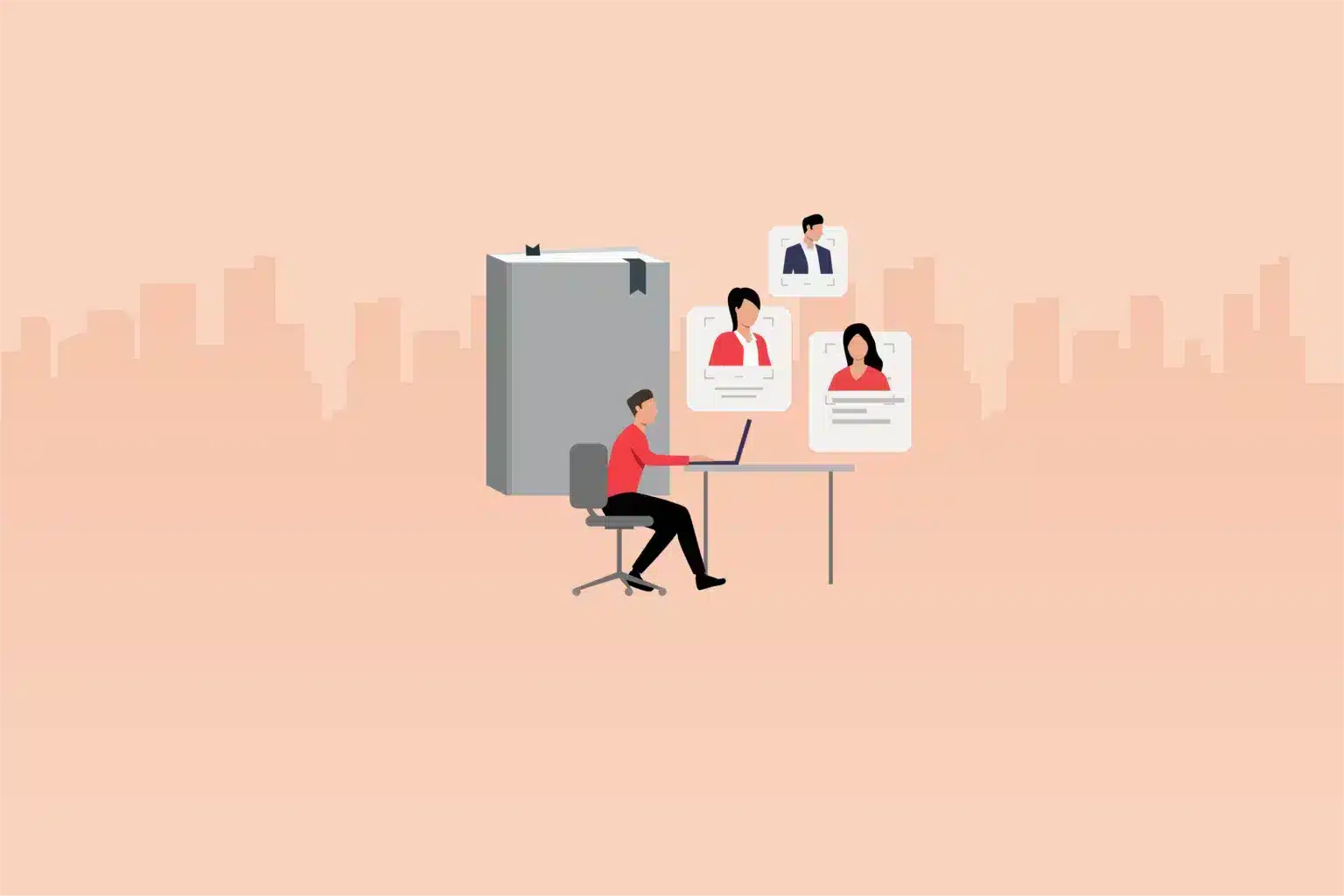The landscape of proofreading has witnessed significant shifts in recent years, reflecting the growing importance of precision and clarity in written communication. As organizations strive to convey their messages accurately and effectively, the demand for skilled proofreaders has been steadily increasing. According to recent analytics, the recruiting trend for proofreaders has experienced a remarkable upswing, with a substantial rise in job postings and hiring activities across various industries.
HR professionals and CXOs, aware of the crucial role played by proofreaders in maintaining a polished and error-free image for their organizations, are actively seeking individuals with exceptional attention to detail and language proficiency. In this dynamic environment, it becomes imperative for employers to identify and assess the right candidates who possess the requisite skills to ensure the integrity and professionalism of their written content. To assist HR personnel and CXOs in this endeavor, we have curated a set of insightful interview questions that will help evaluate the suitability of potential proofreaders for your organization.
Here are the top 60 Proofreader interview questions to ask job applicants:
15 general interview questions for Proofreader
- Can you describe your experience as a proofreader and your familiarity with various writing styles, such as academic, technical, or creative?
- How do you approach proofreading tasks to ensure thoroughness and accuracy?
- What tools or resources do you utilize to assist you in your proofreading process?
- How do you handle tight deadlines and manage multiple proofreading projects simultaneously?
- Can you provide an example of a challenging proofreading situation you encountered and how you resolved it?
- How do you stay updated with grammar, punctuation, and language usage rules to ensure your work aligns with current standards?
- What is your strategy for identifying and correcting common errors, such as spelling mistakes, grammatical inconsistencies, or formatting issues?
- How do you maintain consistency in tone, style, and voice throughout a document, particularly in cases of collaborative writing or multiple authors?
- Can you describe your communication approach when providing feedback or suggesting edits to writers or clients?
- What steps do you take to ensure confidentiality and privacy when proofreading sensitive or proprietary documents?
- How do you handle feedback or criticism regarding your proofreading work, and how do you use it to improve your performance?
- Have you ever had to proofread materials in a foreign language or with specialized terminology? How did you approach these situations?
- Can you share your experience in using proofreading software or tools, and how they have enhanced your efficiency and accuracy?
- How do you adapt to different writing styles and tones while maintaining the intended meaning and clarity of the original text?
- What is your approach to proofreading long or complex documents, and how do you ensure consistency throughout?
5 sample answers to general interview questions for the Proofreader
- Tell me about your experience as a proofreader and the skills you possess in this role.
Look for: The candidate should highlight their relevant experience as a proofreader and mention specific skills such as attention to detail, grammar and punctuation expertise, and knowledge of style guides.
Example answer: “I have been working as a proofreader for the past five years, primarily in the publishing industry. During this time, I have honed my skills in meticulously reviewing written content for errors in grammar, spelling, and punctuation. I am well-versed in various style guides, including the Chicago Manual of Style and AP Stylebook. Additionally, my attention to detail and ability to maintain consistency make me an effective proofreader.”
- How do you manage your time and prioritize tasks when working on multiple projects?
Look for: The candidate should demonstrate their organizational and time management skills, as well as their ability to prioritize tasks effectively.
Example answer: “When faced with multiple projects, I first assess the deadlines and importance of each task. I then create a detailed schedule, breaking down the work into manageable chunks. By setting clear goals and establishing priorities, I ensure that I allocate sufficient time to each project. Additionally, I regularly communicate with project managers and clients to clarify expectations and manage their timelines effectively.”
- Can you describe a time when you encountered a challenging proofreading task? How did you handle it?
Look for: The candidate should share a specific example of a challenging proofreading task they faced and explain how they approached and resolved the situation.
Example answer: “I once encountered a complex technical document that required meticulous proofreading due to its specialized terminology. To tackle this challenge, I first familiarized myself with the subject matter and conducted research to ensure accuracy. I also collaborated closely with the author to clarify any ambiguities and verify facts. By leveraging my attention to detail and effective communication skills, I successfully completed the proofreading task, delivering a polished and error-free document.”
- How do you maintain consistency and adhere to style guidelines in your proofreading work?
Look for: The candidate should demonstrate their knowledge and understanding of style guides and explain their methods for ensuring consistency throughout the proofreading process.
Example answer: “Consistency is crucial in proofreading, and I achieve it by closely following established style guides. I am proficient in various style guides, including MLA, APA, and AMA, and I keep myself updated on any revisions or changes. I use style checklists and templates to maintain uniformity in formatting, capitalization, abbreviations, and citations. Additionally, I am meticulous in documenting any client-specific preferences or guidelines to ensure accurate and consistent proofreading.”
- How do you handle feedback and revisions from clients or colleagues?
Look for: The candidate should demonstrate their ability to accept and incorporate feedback, as well as their communication and collaboration skills.
Example answer: “I value feedback as an opportunity for growth and improvement. When receiving feedback or revision requests, I carefully review the suggestions and analyze how they align with the project’s goals and guidelines. I maintain an open and respectful dialogue with clients or colleagues, seeking clarification when needed and offering solutions to address any concerns. By approaching feedback with a constructive mindset, I ensure that the final product meets or exceeds the expectations of all stakeholders involved.”
15 behavioral interview questions for a Proofreader
- Tell me about a time when you discovered a significant error in a document during the proofreading process. How did you handle it?
- Describe a situation where you had to work under a tight deadline to complete a proofreading project. How did you manage your time and ensure accuracy?
- Can you share an example of a challenging proofreading task that required you to apply your knowledge of a specific industry or subject matter? How did you approach it?
- Tell me about a time when you had to work collaboratively with a writer or editor to resolve conflicting opinions or discrepancies in a document. How did you handle the situation?
- Describe a time when you had to provide constructive feedback to a writer regarding their content. How did you approach the conversation, and what was the outcome?
- Can you share an example of a situation where you identified an error or inconsistency in a document that others had missed? How did you bring it to their attention?
- Tell me about a time when you had to proofread a document in a language or writing style that was unfamiliar to you. How did you adapt and ensure accuracy?
- Describe a situation where you had to handle confidential or sensitive information during the proofreading process. How did you maintain privacy and security?
- Can you share an example of a time when you had to prioritize multiple proofreading projects simultaneously? How did you manage your workload and meet deadlines?
- Tell me about a time when you faced resistance or pushback from a writer or client regarding your suggested edits. How did you handle the situation and ensure that your recommendations were understood and implemented?
- Describe a situation where you had to proofread a document that contained technical jargon or complex terminology. How did you ensure accuracy and clarity in the final version?
- Can you share an example of a time when you had to adapt to changes in a document’s requirements or style guidelines midway through the proofreading process? How did you adjust your approach?
- Tell me about a time when you encountered a document with inconsistent formatting or layout. How did you ensure consistency and make necessary corrections?
- Describe a situation where you had to manage a large volume of proofreading work within a limited timeframe. How did you prioritize, organize, and ensure accuracy throughout the process?
- Can you share an example of a time when you proactively identified a potential error or issue in a document before it went to publication? How did you prevent it from being overlooked?
5 sample answers to behavioral interview questions for the Proofreader
- Tell me about a time when you identified and corrected a significant error in a document. How did you handle it?
Look for: The candidate should describe a specific incident where they discovered a substantial error and explain the steps they took to rectify it, demonstrating their attention to detail and problem-solving abilities.
Example answer: “In a previous role, I came across a critical error in a client’s annual report just before it was scheduled to be published. The error involved a misinterpretation of financial data, which could have had serious consequences if left uncorrected. I immediately flagged the issue to the project manager and collaborated with the content team to obtain accurate figures. We worked diligently to rectify the error and ensure the report’s accuracy before the deadline. This experience reinforced the importance of thorough proofreading and the need for effective communication within a team.”
- Describe a situation where you had to manage conflicting deadlines for multiple proofreading assignments. How did you handle the situation?
Look for: The candidate should demonstrate their ability to prioritize tasks, manage time effectively, and handle pressure while maintaining the quality of their work.
Example answer: “During a particularly busy period, I found myself facing conflicting deadlines for several proofreading assignments. To manage the situation, I immediately assessed the scope and urgency of each project. I communicated with project managers and clients to negotiate realistic deadlines and set clear expectations. I then created a detailed schedule, breaking down the tasks into smaller, manageable segments. By prioritizing tasks based on deadlines and complexity, I successfully met all the deadlines without compromising the quality of my work.”
- Tell me about a time when you had to collaborate with a writer or author to resolve discrepancies or inconsistencies in their content.
Look for: The candidate should demonstrate their communication skills, ability to collaborate effectively, and their attention to detail when working with writers or authors to ensure content accuracy.
Example answer: “In a recent project, I noticed several inconsistencies in the content provided by the author. Instead of making assumptions or making unilateral changes, I reached out to the author for clarification. I prepared a list of questions and scheduled a meeting to discuss the discrepancies. During the conversation, I maintained an open and respectful dialogue, explaining my concerns and seeking the author’s input. Together, we reviewed and resolved the inconsistencies, resulting in a more accurate and cohesive final product.”
- Describe a time when you had to handle feedback or criticism about your proofreading work. How did you respond?
Look for: The candidate should demonstrate their ability to accept feedback, respond professionally, and show a willingness to learn and improve from constructive criticism.
Example answer: “Receiving feedback is an integral part of professional growth, and I welcome it as an opportunity to enhance my skills. On one occasion, a client provided detailed feedback on my proofreading work, highlighting a few areas where improvements could be made. Instead of taking it personally, I carefully reviewed the feedback, analyzed the areas mentioned, and sought clarification when needed. I then took proactive steps to address the feedback, such as revisiting grammar rules and incorporating additional proofreading techniques. By embracing feedback and viewing it as a chance to enhance my abilities, I have continuously evolved as a proofreader.”
- Tell me about a time when you had to handle a difficult client or team member while working on a proofreading project.
Look for: The candidate should demonstrate their interpersonal and conflict resolution skills, ability to remain professional, and their approach to resolving challenging situations.
Example answer: “In a recent project, I encountered a difficult client who had specific expectations that were challenging to meet within the given constraints. To address this situation, I actively listened to their concerns and empathized with their perspective. I then engaged in open and honest communication, discussing the project requirements in detail and providing insights into the proofreading process. By building a rapport based on trust and professionalism, I was able to find common ground, establish realistic expectations, and deliver a final product that met the client’s satisfaction.”
15 personality interview questions for the Proofreader
- How would you describe your approach to working as a Proofreader? What motivates you to deliver high-quality results?
- Are you naturally detail-oriented? Can you provide an example of a situation where your attention to detail made a significant impact on a project?
- How do you handle repetitive tasks or situations that require sustained focus and concentration?
- As a Proofreader, you’ll encounter tight deadlines and multiple projects simultaneously. How do you manage stress and stay organized during such demanding periods?
- Can you describe a time when you had to make a decision while proofreading a document, and there were conflicting opinions on the best course of action?
- How do you stay updated on grammar rules, language usage, and style guidelines? Do you engage in ongoing professional development in your field?
- As a Proofreader, you’ll need to communicate effectively with writers, editors, and clients. How do you ensure clarity and professionalism in your written and verbal communications?
- Proofreading often involves repetitive tasks. How do you maintain focus and avoid overlooking errors, particularly when reviewing lengthy documents?
- Have you ever encountered resistance or pushback from a writer or author regarding your suggested revisions? How did you handle it?
- How do you approach proofreading different types of content, such as technical documents, creative writing, or academic papers? Are there any specific strategies you employ?
- Can you describe a situation where you had to juggle conflicting priorities while proofreading? How did you manage your time effectively in such a scenario?
- As a Proofreader, you’ll likely encounter tight schedules and unexpected changes. How adaptable are you in adjusting to shifting priorities or last-minute revisions?
- How do you handle repetitive or tedious tasks without compromising the quality of your work or becoming complacent?
- Are you comfortable working independently or do you prefer collaborating with others? Can you provide an example of a successful teamwork experience related to proofreading?
- What personal qualities do you believe are essential for a Proofreader to possess? How do you embody these qualities in your work?
5 sample answers to personality interview questions for Proofreaders
- How would you describe your approach to work as a Proofreader? What motivates you to deliver high-quality results?
Look for: The candidate should describe their work approach, emphasizing traits such as attention to detail, thoroughness, and a commitment to delivering accurate and polished work. They should also demonstrate their motivation to maintain high-quality standards.
Example answer: “As a Proofreader, I take a meticulous and detail-oriented approach to my work. I believe that every document, no matter how small, deserves careful scrutiny. I thoroughly review each piece of content, paying close attention to grammar, spelling, punctuation, and consistency. What motivates me is the knowledge that my work contributes to the final polished product. I take pride in delivering error-free content that upholds the integrity and professionalism of the written material.”
- Can you describe a time when your attention to detail made a significant impact on a project?
Look for: The candidate should provide a specific example of a situation where their attention to detail played a crucial role in improving the accuracy or quality of a project.
Example answer: “In a recent project, I was proofreading a research report that contained complex data and statistical analysis. As I carefully reviewed the content, I noticed a discrepancy in the figures presented in the text and the corresponding graph. My attention to detail enabled me to identify the inconsistency and bring it to the attention of the author. By rectifying the error, we ensured that the report accurately reflected the research findings, enhancing its credibility and value.”
- How do you handle repetitive tasks or situations that require sustained focus and concentration?
Look for: The candidate should demonstrate their ability to stay engaged and maintain accuracy in repetitive tasks, while also showing strategies they employ to stay focused and motivated.
Example answer: “I understand that repetitive tasks are an inherent part of proofreading. To stay focused and maintain accuracy, I break down the task into smaller sections and set mini-goals for each segment. This helps me maintain a sense of progress and accomplishment. Additionally, I often take short breaks to recharge and reset my concentration. Engaging in activities like stretching or shifting my focus briefly before returning to the task helps me stay alert and attentive.”
- How do you handle resistance or pushback from a writer or author regarding your suggested revisions?
Look for: The candidate should demonstrate their ability to handle feedback and navigate professional disagreements with diplomacy and professionalism.
Example answer: “When faced with resistance or pushback from a writer or author, I approach the situation with open-mindedness and professionalism. I take the time to listen to their concerns and understand their perspective. I then explain my reasoning behind the suggested revisions, providing examples and emphasizing how they can enhance the overall quality of the content. By maintaining a respectful and collaborative approach, I have been successful in gaining their trust and reaching mutually agreeable solutions.”
- What personal qualities do you believe are essential for a Proofreader to possess? How do you embody these qualities in your work?
Look for: The candidate should identify and discuss important qualities for a Proofreader, such as attention to detail, adaptability, organization, and effective communication. They should then provide examples of how they embody these qualities in their work.
Example answer: “I believe that a Proofreader should possess strong attention to detail, adaptability, organization, and effective communication skills. In my work, I demonstrate attention to detail by meticulously reviewing every aspect of a document, leaving no room for errors. I am adaptable in handling various types of content, such as technical manuals or marketing materials, adjusting my approach to suit the specific requirements of each project. I maintain organization by managing my time effectively, setting clear priorities, and using tools and templates to maintain consistency. Lastly, I ensure effective communication by actively seeking clarification when needed and providing clear and concise feedback to clients or colleagues.”
When should you use skill assessments in your hiring process for Proofreader?
Skill assessments can be valuable tools to incorporate into the hiring process for Proofreaders. They provide objective and quantifiable data that helps evaluate a candidate’s proficiency in essential skills required for the role. Assessments allow employers to assess candidates’ abilities in a standardized manner, ensuring that the chosen candidate has the necessary skills to excel in the position.
Using skill assessments is important because they provide concrete evidence of a candidate’s competence, helping to minimize biases and subjective judgments. Assessments can assess a range of skills crucial for a Proofreader, such as grammar and punctuation knowledge, attention to detail, understanding of style guides, and the ability to spot errors in written content. They enable employers to identify the most qualified candidates who can consistently produce accurate and polished work.
Various assessments can be used to evaluate the skills of a Proofreader. These may include grammar and proofreading tests, where candidates are asked to identify errors in sample texts, correct grammar and punctuation mistakes, or apply style guide principles. Additionally, timed assessments can be used to measure speed and accuracy in proofreading tasks. These assessments provide insights into a candidate’s ability to maintain quality while working efficiently within deadlines. Employers can also consider assigning sample proofreading tasks or requesting a portfolio of previously proofread work to further evaluate a candidate’s skills and style.
By incorporating skill assessments into the hiring process for Proofreaders, employers can make informed decisions based on objective data, ensuring that the selected candidates possess the necessary skills and capabilities to excel in the role.
Use our interview questions and skill tests to hire a talented Proofreader
Unlock the potential of your hiring process with Testlify’s comprehensive skill assessments and interview questions specifically designed for Proofreader.
Our extensive test library offers a wide range of assessments, including cognitive function, personality, situational judgment, programming, and more. By leveraging these assessments, you can objectively evaluate candidates’ abilities, ensuring you shortlist the most talented individuals efficiently.
To further enhance your hiring process, we invite you to book a free 30-minute live demo. Our expert team will guide you through the platform, showcasing relevant skill tests tailored to your hiring needs. With our support, you can streamline candidate selection, saving valuable time and resources.
Ready to find the perfect fit for your Proofreader role? Testlify provides the tools you need to make informed hiring decisions. Explore our skill assessments and interview questions today to uncover exceptional talent for your team.







